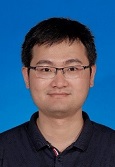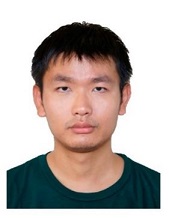OTFS-enabled Satellite Communications (Week 1)
Organizers:
Weijie Yuan, Southern University of Science and Technology
Gunes Karabulut Kurt, Polytechnique Montréal
Lin Bai, Beihang University
Co-organized by Orthogonal Time Frequency Space (OTFS) SIG, Satellite Mega-Constellations SIG, Space Air Ground Integrated (SAGI) Communications SIG in IEEE ComSoc, IEEE YP Montreal, IEEE YP Ottawa, IEEE SB INRS.
This talk considers the joint channel estimation and device activity detection in the grant-free random access systems, where a large number of Internet-of-Things devices intend to communicate with a low-earth orbit satellite in a sporadic way. In addition, the massive multiple-input multiple-output (MIMO) with orthogonal time-frequency space (OTFS) modulation is adopted to combat the dynamics of the terrestrial-satellite link. We first analyze the input-output relationship of the single-input single-output OTFS when the large delay and Doppler shift both exist, and then extend it to the grant-free random access with massive MIMO-OTFS. Next, by exploring the sparsity of channel in the delay-Doppler-angle domain, a two-dimensional pattern coupled hierarchical prior with the sparse Bayesian learning and covariance-free method (TDSBL-FM) is developed for the channel estimation. Then, the active devices are detected by computing the energy of the estimated channel. Finally, the generalized approximate message passing algorithm combined with the sparse Bayesian learning and two-dimensional convolution (ConvSBL-GAMP) is proposed to decrease the computations of the TDSBL-FM algorithm. Simulation results demonstrate that the proposed algorithms outperform conventional methods.
-------------------------------------------------------
9:00 am - 09:05 am Welcome Speech by Prof. Halim Yanikomeroglu
-------------------------------------------------------
9:05 am - 10:05 am First Talk by Prof. Yongpeng Wu
Title: Random Access with Massive MIMO-OTFS in LEO Satellite Communications
Abstract: This talk considers the joint channel estimation and device activity detection in the grant-free random access systems, where a large number of Internet-of-Things devices intend to communicate with a low-earth orbit satellite in a sporadic way. In addition, the massive multiple-input multiple-output (MIMO) with orthogonal time-frequency space (OTFS) modulation is adopted to combat the dynamics of the terrestrial-satellite link. We first analyze the input-output relationship of the single-input single-output OTFS when the large delay and Doppler shift both exist, and then extend it to the grant-free random access with massive MIMO-OTFS. Next, by exploring the sparsity of channel in the delay-Doppler-angle domain, a two-dimensional pattern coupled hierarchical prior with the sparse Bayesian learning and covariance-free method (TDSBL-FM) is developed for the channel estimation. Then, the active devices are detected by computing the energy of the estimated channel. Finally, the generalized approximate message passing algorithm combined with the sparse Bayesian learning and two-dimensional convolution (ConvSBL-GAMP) is proposed to decrease the computations of the TDSBL-FM algorithm. Simulation results demonstrate that the proposed algorithms outperform conventional methods.
-------------------------------------------------------
10:05 am - 11:05 am Second Talk by Dr. Pu Yuan
Title: Orthogonal Time Frequency Space from the System Design Perspective
Abstract: This talk considers the design issues of OTFS in future communication systems. We first brief the principle of OTFS waveform, following with the performance gain analysis. Then from the system design perspective, we introduce the consideration of co-existence of OTFS and OFDM, low PAPR pilot signal design, and MIMO precoding in OTFS. At last, we will discuss the impact of channel model on the performance of OTFS and show some preliminary results of the OTFS prototypes.
Date and Time
Location
Hosts
Registration
-
 Add Event to Calendar
Add Event to Calendar
Loading virtual attendance info...
Speakers
 Yongpeng Wu
Yongpeng Wu
Biography:
Yongpeng Wu received the B.S. degree in telecommunication engineering from Wuhan University, Wuhan, China, in July 2007, the Ph.D. degree in communication and signal processing with the National Mobile Communications Research Laboratory, Southeast University, Nanjing, China, in November 2013. Dr. Wu is currently a Tenure-Track Associate Professor with the Department of Electronic Engineering, Shanghai Jiao Tong University, China. Dr. Wu was awarded the Alexander von Humboldt Fellowship in 2014, the Excellent Doctoral Thesis Awards of China Communications Society 2016,the Exemplary Editor Award of IEEE Communication Letters 2017, Young Elite Scientist Sponsorship Program by CAST 2017, and Excellent Youth Science Fund Project of National Natural Science Foundation of China 2021. He was an Exemplary Reviewer of the IEEE Transactions on Communications in 2015, 2016, 2018. He was the lead guest editor for the special issue ``Physical Layer Security for 5G Wireless Networks" of the IEEE Journal on Selected Areas in Communications and lead guest editor of the special issue `` Safeguarding 5G-and-Beyond Networks with Physical Layer Security” of IEEE Wireless Communications. He is currently an editor of IEEE Wireless Communications, IEEE Transactions on Communications and IEEE Communications Letters. He has been symposium chairs of various conferences, including Globecom, ICC, VTC, and PIMRC, etc.
 Pu Yuan
Pu Yuan
Biography:
Dr. Pu Yuan is currently with the vivo communication research institute, Beijing, China, as a research and standardization engineer. Prior to that, he was with 2012 Laboratories, Huawei Technologies, Shanghai, China. Dr. Yuan received the B.Eng. degree from Tianjin University, Tianjin, China, and the M.S. and Ph.D. degrees from Nanyang Technological University, Singapore. His current research focus includes delay-Doppler domain modulation and its standardization-oriented design.
Agenda
9:00 am - 10:05 am Welcome Speech by Prof. Halim Yanikomeroglu
9:05 am - 10:05 am First Talk by Prof. Yongpeng Wu
10:05 am - 11:05 am Second Talk by Dr. Pu Yuan
This event is co-sponsored by STARaCOM


